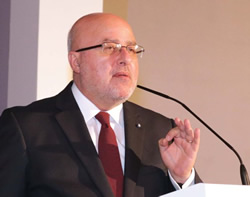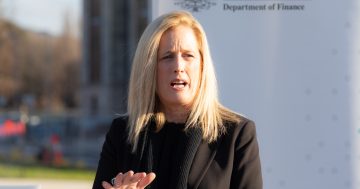 New ‘revolving door’ rules for the Maltese Public Service will apply only to those who have held supervisory or inspectorate roles, Principal Permanent Secretary, Mario Cutajar (pictured) says.
New ‘revolving door’ rules for the Maltese Public Service will apply only to those who have held supervisory or inspectorate roles, Principal Permanent Secretary, Mario Cutajar (pictured) says.
The new rules state that senior Public Servants who held positions in regulatory or inspectorate functions cannot join an organisation they dealt with for two years after resigning or retiring.
However, Mr Cutajar said certain posts, such as Chief Executive of Transport Malta, Infrastructure Malta, and Film Commissioner, were not included in the list of roles from which it was now prohibited to transition directly into the private sector.
“The Transport Malta Chief Executive does not have a regulatory function. Nor does the Film Commissioner, or roles with Infrastructure Malta,” Mr Cutajar said.
Mr Cutajar said that similar laws in other European Union countries all qualified to which positions revolving door rules applied.
“The law, which is being applied in Malta for the first time, is very clear, and one cannot go beyond its parameters. Ultimately, the new rules will continue boosting the public sector’s credibility,” he said.
A lawyer specialising in employment and industrial relations law, Ian Spiteri Bailey said that he could not immediately see anything in the new rules which was contrary to law.
However, Mr Spiteri Bailey said he could understand that one might ask why some roles from particular sectors, such as the Film Commissioner, were excluded, while others were included.
“In areas of the public sector where the role occupied is broad in nature, it is easier to apply revolving door rules, Mr Spiteri Bailey said.
“Those occupying such a public sector role could feasibly find an alternative role within the private sector which is not directly related to their past public job,” he said.
Mr Spiteri Bailey said that in the case of other posts which were more specific in nature, it would be difficult to require that someone who worked in such a position not be able to leave their public sector role and enter a similar position in private industry.
“To give a very simple example to illustrate this point, if a person had spent their life working specifically to make bread, it would not make sense to prohibit that individual from joining a bakery,” he said.
Valetta, 2 July 2020











